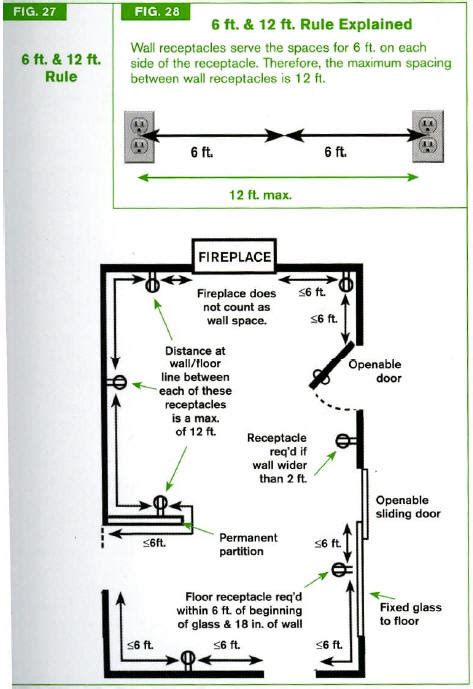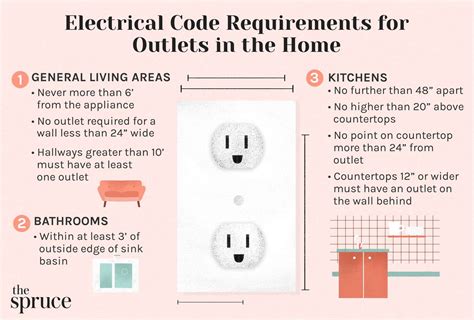electical codes for electrical boxes 40 year old residence Most local residential electrical codes are based on the NEC—the National Electrical Code —a model code that provides guidelines on which local communities can model their own residential codes.
There are many different metals and alloys that come in sheet form and are ultimately used in the fabrication of manufactured parts. The choice of which material depends largely on the final application of the fabricated parts, things to consider include formability, weldability, corrosion resistance, strength, weight, and cost.
0 · residential electrical codes explained
1 · residential electrical code replacement
2 · residential electrical code regulations
3 · residential electrical box requirements
4 · plastic electrical box requirements
5 · household electrical code requirements
6 · electrical code requirements for bedrooms
7 · electrical code for plastic box
Discover our 22"" Stainless Steel laundry and utility sink, the ultimate in laundry elegance. Constructed using premium materials, our sink features a composition of 18% Chromium and 10% Nickel, making it highly resistant to corrosion and stains.
residential electrical codes explained
Professional electricians often refer to the National Electrical Code (NEC), a massive volume that describes national codes for residential and commercial wiring. You don't necessarily need to buy this book, but you might need to refer to a library copy or an online version from time to time. Local building . See moreAny electrical plan, however simple or complex, must start with two considerations. First, make sure the new service doesn't overload a circuit. Second, see that all receptacles and appliances are safely grounded. . See moreHere are some of the most common general requirements for home electrical systems. Of course, local building departments might have different demands. Boxes: Plastic electrical boxes are standard . See more
Some residential electrical codes apply to the entire house, while others apply to specific rooms. Here are some general guidelines, but note that local codes might vary. These requirements usually apply only to new installations, as older wiring does not have to comply as long as it is safe. These requirements make good sense and are not . See more
Electrical codes are rules or laws that dictate how electrical wiring can be installed in residences. Local code always takes precedence over the NEC if there are any differences, so be sure to check with your local building .
Most local residential electrical codes are based on the NEC—the National Electrical Code —a model code that provides guidelines on which local communities can model their own residential codes. Although the National Electrical Code (NEC) is a standard for new construction and repairs, and is not applicable to existing electrical systems, the NFPA has a separate standard .Electrical code compliance is crucial for homeowners to ensure the safety, functionality, and longevity of their electrical systems. Compliance also ensures that the electrical system meets the latest industry standards, reducing the risk .
When you’re planning to house electrical wiring in a junction box or waterproof enclosure, you will need to adhere to the National Electrical Code (NEC). At Polycase, we offer products designed to meet industry and electrical .
Installing electrical boxes and cables is made easy by following these recommended electrical installation codes. Don't just install your electrical wiring haphazardly, do it by the book of the National Electrical Code . Learn about modern and old electrical systems in homes, including safety tips, wiring, circuit breakers, and essential code requirements.
Explore different aspects of residential electrical codes, including requirements, updates, and compliance considerations to keep your residence safe. Learn information on national and local electrical codes, tips for having an inspector approve your work, how to load and ground circuits, and more. When you're replacing an existing light fixture, switch, or power outlet, there's usually no need to consult residential electrical codes. Electrical codes are rules or laws that dictate how electrical wiring can be installed in residences. Local code always takes precedence over the NEC if there are any differences, so be sure to check with your local building department about specific requirements for . Most local residential electrical codes are based on the NEC—the National Electrical Code —a model code that provides guidelines on which local communities can model their own residential codes.
Although the National Electrical Code (NEC) is a standard for new construction and repairs, and is not applicable to existing electrical systems, the NFPA has a separate standard for evaluating the safety of older wiring and electrical components.Electrical code compliance is crucial for homeowners to ensure the safety, functionality, and longevity of their electrical systems. Compliance also ensures that the electrical system meets the latest industry standards, reducing the risk of outdated or unsafe practices.

residential electrical code replacement
When you’re planning to house electrical wiring in a junction box or waterproof enclosure, you will need to adhere to the National Electrical Code (NEC). At Polycase, we offer products designed to meet industry and electrical safety codes. Installing electrical boxes and cables is made easy by following these recommended electrical installation codes. Don't just install your electrical wiring haphazardly, do it by the book of the National Electrical Code . Learn about modern and old electrical systems in homes, including safety tips, wiring, circuit breakers, and essential code requirements.Explore different aspects of residential electrical codes, including requirements, updates, and compliance considerations to keep your residence safe.
Electrical panel boxes, aka breaker boxes, can be on a wall in an out-of-the-way area of your home. You can find electric panels inside cabinets, behind refrigerators, or inside clothes closets in older homes. Current National Electrical .
Learn information on national and local electrical codes, tips for having an inspector approve your work, how to load and ground circuits, and more. When you're replacing an existing light fixture, switch, or power outlet, there's usually no need to consult residential electrical codes. Electrical codes are rules or laws that dictate how electrical wiring can be installed in residences. Local code always takes precedence over the NEC if there are any differences, so be sure to check with your local building department about specific requirements for . Most local residential electrical codes are based on the NEC—the National Electrical Code —a model code that provides guidelines on which local communities can model their own residential codes. Although the National Electrical Code (NEC) is a standard for new construction and repairs, and is not applicable to existing electrical systems, the NFPA has a separate standard for evaluating the safety of older wiring and electrical components.
Electrical code compliance is crucial for homeowners to ensure the safety, functionality, and longevity of their electrical systems. Compliance also ensures that the electrical system meets the latest industry standards, reducing the risk of outdated or unsafe practices. When you’re planning to house electrical wiring in a junction box or waterproof enclosure, you will need to adhere to the National Electrical Code (NEC). At Polycase, we offer products designed to meet industry and electrical safety codes.
Installing electrical boxes and cables is made easy by following these recommended electrical installation codes. Don't just install your electrical wiring haphazardly, do it by the book of the National Electrical Code . Learn about modern and old electrical systems in homes, including safety tips, wiring, circuit breakers, and essential code requirements.Explore different aspects of residential electrical codes, including requirements, updates, and compliance considerations to keep your residence safe.

In the United States, there are many excellent sheet metal fabricators, they rely on a wealth of experience and expertise to provide customers with high quality, efficient service. With this guide, we’ll introduce these top companies to help you make an informed choice.
electical codes for electrical boxes 40 year old residence|electrical code for plastic box